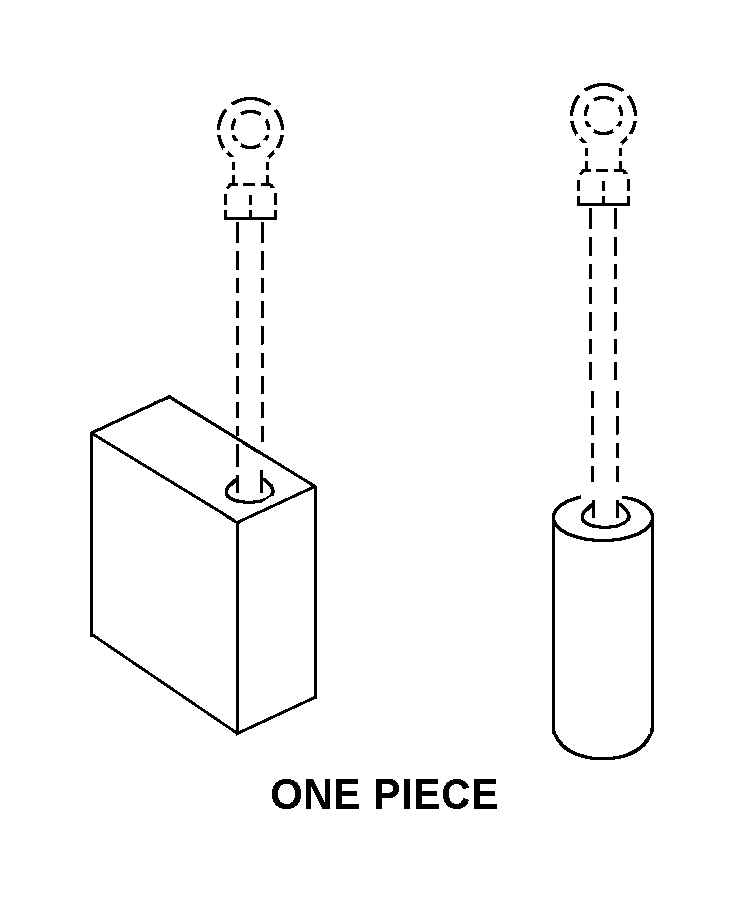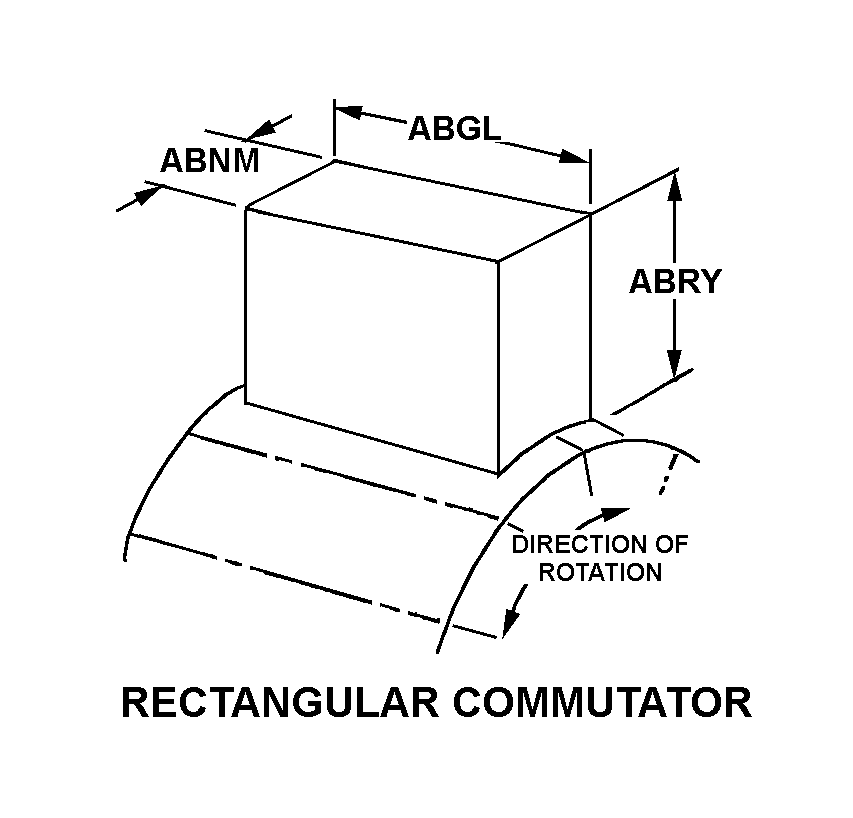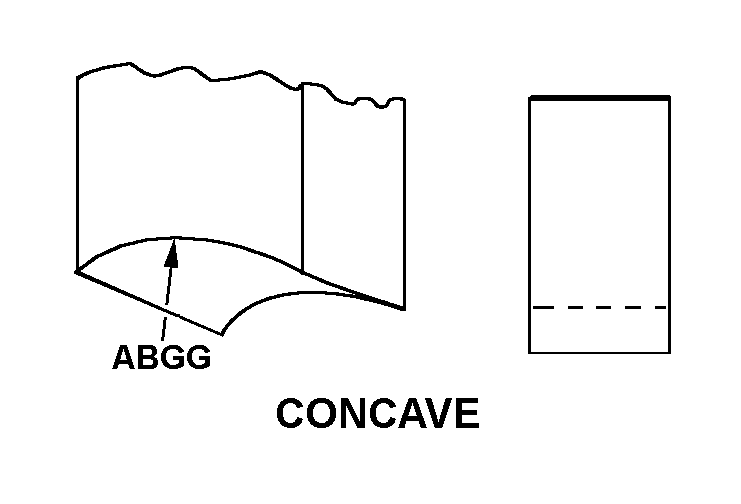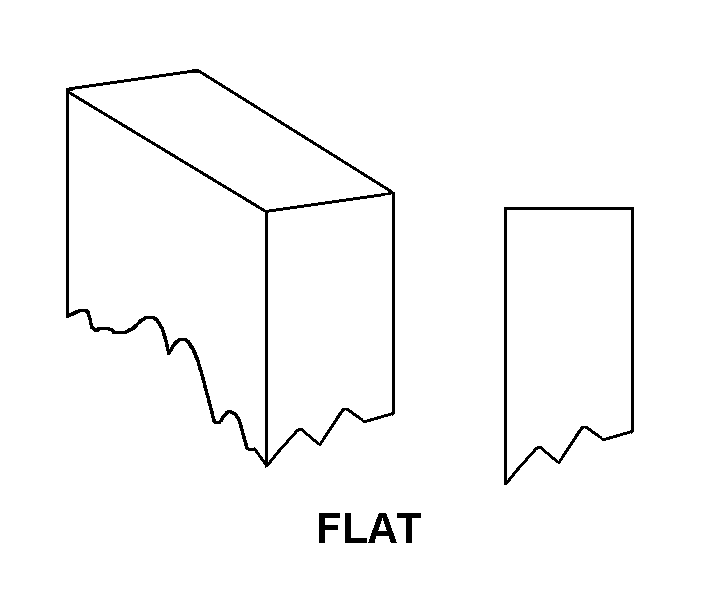5977000334622
Price Quote Get an up to date pricing and availability quote for this product. Order online or over the phone.
Quality Commitment
Serving our customers with quality and safety first.
- AS9120 Certified
- Audited supply chain
- ITAR Registered
- DDTC Registered
- HAZMAT Certified
- Customer service objectives
- Every product 100% inspected

5977-00-033-4622 Specification Set by the OEM (see RNCC code 3)
2 and 8
rectangular commutator
0.813in.
0.746in.
0.246in. ⁓1/4"
0.750in.
1.000in. all shunts
0.170in.
flat
concave
2 insulated
carbon
one piece
1 flag w/hole
Cross Reference Parts Part numbers that meet the specification outlined on this page and set by the OEM
Identification Item Identification Guide (IIG) and Item Name Code (INC)




Definition Definition of approved item name (AIN): "BRUSH,ELECTRICAL CONTACT"
An item specifically designed to be used in the transfer of electrical energy to or from another conducting surface. Either the brush or the surface is continually moving during the transfer of energy. The brush is usually composed in part of some form of the element carbon. Includes: (1) a single brush either with or without an attached shunt (flexible wire lead) and/or a helical or flat type pressure spring; (2) a split brush composed of two or more pieces (wafers), which are used in place of one brush usually connected together by individual shunts to a common terminal; (3) paired brushes composed of two identical or non-identical brushes connected together by a common shunt either with or without pressure springs or connected by individual shunts to a common terminal, or with pressure springs and connected to a common bar, bracket or the like either with or without individual shunts; (4) multiple brushes composed of more than two identical or non-identical brushes without pressure springs connected by individual shunts to a common terminal, or with pressure springs and connected to a common bar, bracket or the like by individual shunts. Does not include moving contacts which make and slide past stationary contacts, but are stationary while the circuit is conducting, such as the sliding contacts on a rheostat or the stationary contact on a synchro. Excludes: contact, electrical; and contact assembly, electrical.
5977-00-033-4622 Material Hazmat, Precious Metals, Criticality, Enviroment, and ESD
Indicates there is no data in the hmirs and the nsn is in a fsc not generally suspected of containing hazardous materials.
Precious metal content is unknown
The item does not have a nuclear hardened feature or any other critical feature such as tolerance, fit restriction or application.
Identification Codes
HMIC: Hazardous Material Indicator Code. A one position code that identifies a hazardous item.
PMIC: Precious Metal Indicator Code. A one position code which identifies items that have precious metals as part of their content. precious metals are those metals generally considered to be uncommon, highly valuable, and relatively superior in certain properties such as resistance to corrosion and electrical conductivity.
ESD: Electrostatic Discharge. Indicates if an item is susceptible to electrostatic discharge or electromagnetic interference damage. electrostatic discharge damage occurs when an accumulation of static electricity generated by the relative motion or separation of materials is released to another item by direct contact. electromagnetic interference damage occurs when an item comes into proximity with an electrostatic or magnetic field.
ENAC: Enviromental Attribute Code. Identifies items with environmentally preferred characteristics.
CRITL: Criticality Indicator Code. Indicates an item is technically critical by tolerance, fit, application, nuclear hardness properties, or other characteristics.






